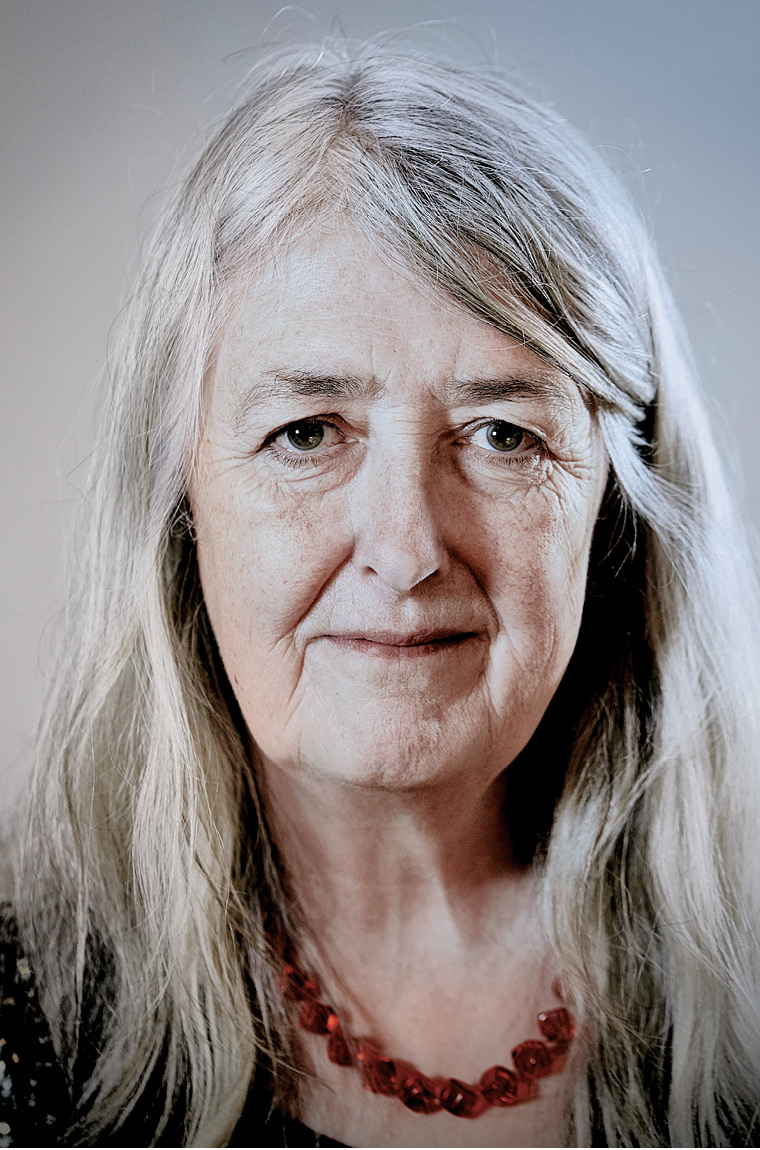Mary Beard

Hillary
In 2012, a well-known British television critic took author and renowned Cambridge classics professor Mary Beard to task—not for her arguments, or for the content of the documentary series on Ancient Rome that she hosted on the BBC, but for being too unattractive to appear on television. As she later paraphrased it to me, his message was, in effect: “You look like the back end of a bus. How dare you come into our living room with those teeth?” After listening patiently to her friends’ well-intentioned advice not to take the bait, Mary came to a different conclusion: She took the bait.
Her response began: “As a classicist, I know a lot about revenge: the Ancient Greeks and Romans were horribly good at it. But not the crude, getting-your-own-back sort; they always ensured their retribution was absolutely appropriate to the crime.” She countered the critic’s ludicrous argument (as well as his time-worn caveat that he was, of course, being neither sexist nor beside the point) line by brilliantly written line. She didn’t shy away from the fact that his nasty comments were hurtful—to her, and to the vast numbers of women around the world who looked like her. “I’m every inch the 57-year-old wife, mum and academic, half-proud of her wrinkles, her crow’s feet, even her hunched shoulders from all those misspent years poring over a library desk,” she wrote unapologetically. “The real point is not what I look like, but what I do.” A cheer went up from women around the world who were all too familiar with the miserable feeling of being told, either explicitly or implicitly: “Go away. You have nothing to say.”
“For a start it doesn’t much matter what line you take as a woman, if you venture into traditional male territory, the abuse comes anyway. It is not what you say that prompts it, it’s simply the fact that you’re saying it.”
—MARY BEARD
Mary grew up in the 1950s in Shrewsbury, England, the daughter of a school headmistress and an architect. During her summers in high school, she would join archaeological excavations—which offered a thrilling learning experience. After graduating from Cambridge University, she began writing and teaching. She earned her PhD, studying state religion in the Roman republic, and wrote a pioneering work on the Vestal Virgins in 1980. After she and her husband, an art historian, had their two children, she struggled to carve out the time serious research demanded. In 1989, she published her first book written alone in her own name: The Good Working Mother’s Guide. Sharing the practical tips she had learned from experience, she said later, “seemed a fun thing to do.” She then returned to history, publishing books, teaching at Cambridge, and bringing classics to viewers on the BBC.
After Mary’s spot-on column in 2012, she received an outpouring of support from women. Queen Elizabeth II made her a Dame of the Order of the British Empire (not for the book, but for her contributions to public life). She kept appearing on television. In one of my favorite appearances of hers, in 2016, she debated politician Boris Johnson for charity on the subject of Greece versus Rome. She explained that, going into the debate, she knew her only chance of winning was to be “fantastically prepared.” That’s something women everywhere can relate to. In the end, her preparation paid off, and she won resoundingly.
“We have no template for what a powerful woman looks like, except that she looks rather like a man.”
—MARY BEARD
Along the way, Mary has built an appropriately large and appreciative Twitter following. She routinely uses the platform to stand up for facts and stand up to her trolls not with anger but with what she calls “aggressive politeness.” She even publicly shamed one particularly vicious tweeter into taking her out to lunch to apologize. (Dare to dream!) “You just start to care less when you’re old,” she has said. “It’s a great pleasure that I can show younger women that you can stand up to these guys. You can call them out. And life goes on.” (Yes it does!)
In 2017, Mary published a book that made me want to stand up once again and applaud. Women & Power: A Manifesto chronicles centuries of silencing women who dared to speak their minds, from The Odyssey to the 2016 presidential election. In it, she takes on years of criticism of women’s oratorical style, the complicated dynamics of speaking up in a meeting as a woman, the “first recorded example of a man telling a woman to ‘shut up,’ ” and more. When I had the opportunity to sit down with her on a visit to London in 2017, I refrained from reading back at her every line that had resonated with me, since we would have been there all day. In her manifesto, she concluded: “If women are not perceived to be fully within the structures of power, surely it is power that we need to redefine rather than women?” At every step of her career, Mary has been doing her part.